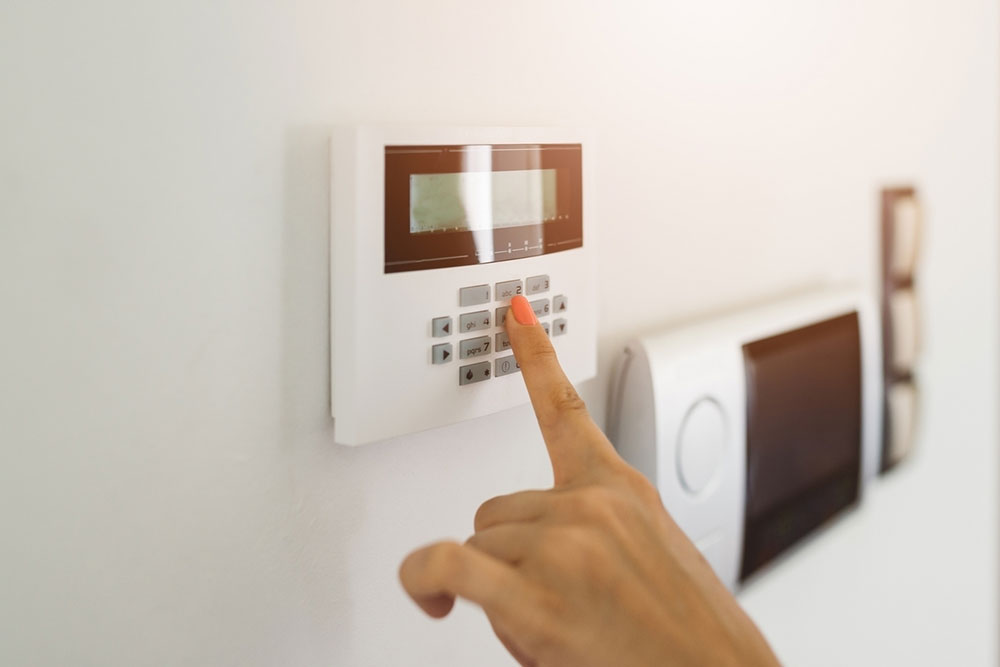Top 10 reasons to get a home alarm system

Enhancing the security of a home is essential for preventing theft, intrusions, and damage. An alarm system can help here. From deterring intruders to alerting the authorities, an alarm system can protect the home and its occupants, giving them some peace of mind and a sense of security whether they are at or away from home. Also, today one can choose from different kinds of security systems and get additional features like video surveillance.
1. Deter intruders
Alarm systems can deter intruders. Upon noticing a security system, burglars and other intruders may avoid targeting a home. The mere sight of security cameras or alarm sensors can make intruders think twice before attempting to break into a home, as such tools can capture the home invasion and alert the authorities as well as home occupants, leading to the intruders’ arrests. So, a security system can reduce the risk of burglary and property damage.
2. Get immediate alerts
Modern alarm systems are equipped with advanced sensors and monitoring technology that can detect unauthorized entry or suspicious activity in real time. Then, the systems can promptly alert home occupants and authorities, allowing for swift response and intervention. The immediate notification ensures that one can take appropriate action to address the situation, whether it involves contacting law enforcement agencies or strengthening the security of their property.
3. Protect valuables
Alarm systems not only safeguard the occupants of a home but also protect valuable belongings. In the event of a break-in, the alarm system can alert home occupants and authorities, minimizing the risk of theft, recording the home invasion, and increasing the chances of recovering stolen items. Also, by deterring intruders and detecting unauthorized entry, alarm systems play a crucial role in safeguarding valuables such as jewelry, electronics, and other big-ticket items.
4. Monitor the home remotely
Many alarm systems offer remote monitoring and control features, allowing one to access their security system from anywhere via a smartphone or computer. This feature enables one to arm and disarm the system, receive alerts, and monitor surveillance footage remotely, enhancing convenience and peace of mind. Also, whenever one is away from home, say for work or on vacation, they can keep an eye on their home through the security system and ensure the safety of their property and loved ones.
5. Detect health hazards
In addition to intruder detection, many alarm systems are equipped with sensors for detecting smoke, fire, and carbon monoxide. Early detection of these hazards can save lives and prevent extensive property damage by alerting occupants and emergency services promptly. So, by integrating fire and carbon monoxide detection into their home security system, one can get complete protection against both intruders and health hazards.
6. Get insurance benefits
Installing a home alarm system can help one secure lower premiums on home insurance. Insurance companies often offer discounts to those with comprehensive security systems in place, as this reduces the risk of theft or property damage. So, a home alarm system not only enhances the security of the home but also helps one save money on their home insurance policy.
7. Enhance resale value
Homes equipped with alarm systems are considered safer and more desirable in the real estate market. As a result, installing a security system can increase the resale value of a home and attract potential buyers looking for added security features. So, whether considering selling their home in the near future or planning for the long term, homeowners can benefit from the added resale value that comes with having a home alarm system installed.
8. Get some peace of mind
Above all, a home alarm system provides one with peace of mind. Knowing that the home is protected around the clock, even when one is away, allows one to relax and enjoy their time with family and friends without worrying about security threats. Whether at work, on vacation, or at home, homeowners can rest assured knowing that their homes and loved ones are safe and secure.
9. Integrate with smart home devices
Modern alarm systems often integrate seamlessly with other smart home devices, enhancing convenience and control. By connecting to smart locks, lights, and thermostats, alarm systems can automate various home security tasks, enhancing overall efficiency. For example, one can program their alarm system to automatically arm when they leave the house and disarm when they return, ensuring continuous protection without manual intervention.
10. Choose from various tools
Another advantage of home alarm systems is their ability to be customized and scaled according to the specific needs of users. Whether protecting a small apartment or a large estate, alarm systems can be tailored to fit the size and layout of any property. One can choose from a variety of sensors, cameras, and monitoring options to create a personalized security solution that meets their unique requirements. Additionally, alarm systems can be easily expanded or upgraded over time as one’s security needs evolve.
Investing in a home alarm system is not just a precautionary measure, it is a proactive step toward ensuring the safety and security of the home, precious belongings, and loved ones. To choose the right alarm system one should compare top-rated options in terms of their features, ease of installation, and price. Then, one should choose a home alarm system that meets most requirements and offers good value for money.



